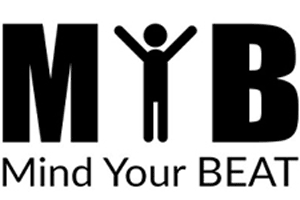Mind Your BEAT
- Need: Rural cancer survivors report lower levels of physical activity and higher rates of psychosocial distress compared to their urban counterparts.
- Intervention: Researchers collaborated with a rural-serving organization in northeast Texas to test a 3-month intervention which enhanced an existing exercise program with behavioral health education, yoga, and home-based exercise components.
- Results: Program participants were twice as likely to report meeting physical activity recommendations at post-intervention than participants in a control group and reported significant reductions in psychosocial distress.
Description
 Rural cancer survivors report lower
levels of physical activity and higher rates of
psychosocial distress compared to their urban
counterparts. However, most existing evidence-based
interventions were developed in urban settings and may
not be suitable for implementation in rural communities.
Rural cancer survivors report lower
levels of physical activity and higher rates of
psychosocial distress compared to their urban
counterparts. However, most existing evidence-based
interventions were developed in urban settings and may
not be suitable for implementation in rural communities.
In response, researchers at The University of Texas MD Anderson Cancer Center in Houston developed Mind Your BEAT (MYB), a culturally adapted, community-based intervention to promote physical activity and reduce psychosocial distress among rural cancer survivors in northeast Texas. The program design was informed by interviews with rural organizational partners and breast cancer survivors.
Researchers identified a need for programming that would offer psychological health and well-being services in combination with physical activity interventions, in a format that would be accessible to rural participants while not overburdening organizational staff. Cancer survivors noted that it was difficult to commit to an exercise regimen without first tending to their psychological health and well-being.
Mind Your BEAT was implemented in partnership with Kourage Health, a rural-serving nonprofit that supports movement as medicine programming for cancer survivors at various locations in northeast Texas. Researchers enhanced standard Kourage Health exercise programming with behavioral health and well-being components. This enhanced programming included elements from BEAT Cancer (an evidence-based physical activity intervention for cancer survivors) such as group behavioral health education, in addition to yoga and home-based exercise components.
Mind Your BEAT was funded by the National Cancer Institute (NCI), with additional support from the University of Texas System.
Services offered
Mind Your BEAT participants were recruited primarily through Kourage Health. Individuals who were at least 18 years of age, who had received a breast cancer diagnosis and were at least three months post-treatment were eligible for participation. Following recruitment, 43 participants completed an initial assessment, including the following components:
- Height, weight, and blood pressure
- 30 second sit-to-stand test
- Accelerometer device, worn for one week, to measure baseline physical activity
- National Comprehensive Cancer Network (NCCN) Distress Thermometer screening
Next, participants were randomized into two groups. The first group continued to engage with standard Kourage Health programming. The second group participated in the enhanced Mind Your BEAT intervention, which included the following components:
- Three exercise classes per week through Kourage Health, which offers services at a variety of locations throughout northeast Texas. A variety of formats are available, including individual sessions and online videos, to enhance accessibility for rural participants.
- Six group classes on behavioral change and stress management while adopting a new physical activity regimen Yoga classes, including guided relaxation, to support psychological health and well-being
- Educational materials for participants to guide home-based exercises and home-based yoga following program completion
The duration of the intervention was three months. Participants completed a second assessment upon program completion, and a final assessment three months later to measure post-intervention effects and maintenance.
Results
Mind Your BEAT participants were twice as likely to report meeting physical activity recommendations at post-intervention than participants in the control group and reported a 50% reduction in self-reported psychosocial distress.
Anecdotally, researchers heard from participants that they enjoyed the program and felt that the behavioral health and well-being components helped them commit to the Kourage Health exercise programming.
Dr. Scherezade Mama, lead researcher, presented initial findings in a 2024 webinar through the NCI Office of Cancer Survivorship Director's Series.
Journal articles with more comprehensive results and analysis are forthcoming.
Challenges
The final assessment revealed that few participants were able to maintain their physical activity regimen in the months following study completion. All participants continued to have access to Kourage Health programming following the completion of the three-month study period, but few continued to engage regularly or to exercise at home. The Mind Your BEAT group reported higher post-intervention adherence than the control group, but researchers feel that there is significant room for improvement. Currently, they are exploring strategies and behavioral change techniques that could promote a higher rate of post-intervention adherence and maintenance of changes.
Replication
Mind Your BEAT was developed by enhancing an existing rural-serving program, rather than attempting to replace or compete with existing services. Researchers recommend this strategy to other cancer centers working to expand or improve programming for rural cancer survivors. Begin by asking: what is a trusted resource in our region, and how can we build on that resource?
Contact Information
Scherezade K. Mama, Dr.PH, Associate Professor, Department of Health Disparities ResearchThe University of Texas MD Anderson Cancer Center
713.563.7546
skmama@mdanderson.org
Topics
Behavioral health
· Cancer
· Physical activity
States served
Texas
Date added
January 15, 2025
Suggested citation: Rural Health Information Hub, 2025. Mind Your BEAT [online]. Rural Health Information Hub. Available at: https://www.ruralhealthinfo.org/project-examples/1151 [Accessed 18 April 2025]
Please contact the models and innovations contact directly for the most complete and current information about this program. Summaries of models and innovations are provided by RHIhub for your convenience. The programs described are not endorsed by RHIhub or by the Federal Office of Rural Health Policy. Each rural community should consider whether a particular project or approach is a good match for their community’s needs and capacity. While it is sometimes possible to adapt program components to match your resources, keep in mind that changes to the program design may impact results.
